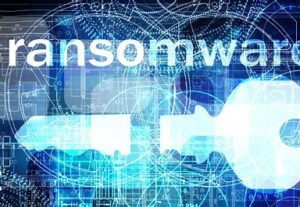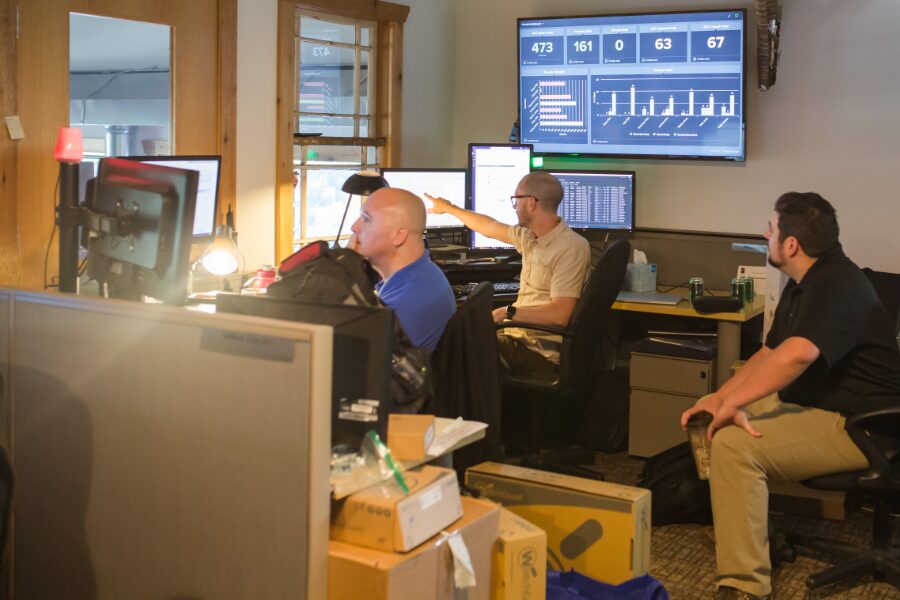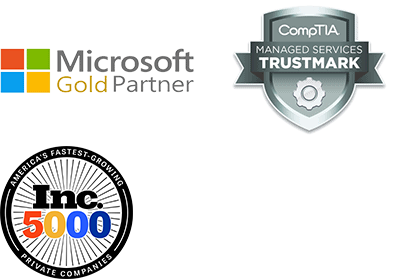Businesses, especially IT groups and managed service providers, should be prepared to address the looming technical and security challenges that await if events take a negative turn.
When the President of the United States addresses the nation in a press conference to discuss the potential for a Coronavirus (now referred to as Covid-19) epidemic, everyone takes notice – especially the stock market and businesses. Markets often react to the psychology of the moment and rebound after the initial shock is absorbed. Companies, however, need strategies, operational plans and organizational structures to deal with the potential long-term consequences.
As Health and Human Services (HSS) Secretary, Alex Azar, noted in the presidential briefing, businesses should be prepared for the eventuality of the Coronavirus spreading as it has in other countries like China, South Korea and now, Italy. CDC deputy director, Anne Schuchat, suggested companies should “dust… off” their business continuation plans for any disruptions that may result if the contagion spreads widely in the US.
Governmental initiatives and recommendations will be primarily geared toward reducing the amount of human to human contact in addition to heightened awareness of our own personal hygiene habits.
So, what are some implications of less human to human contact?
- More remote working
- Less travel and more virtual meetings & events
- Disruption of critical vendor products and services
- Bad actors playing on employee fears and anxieties about the Coronavirus
Companies, especially their IT groups (and managed service providers) need to start contingency planning now to address these technology and security concerns.
Adopting sensible work from home policies – “do the right thing” – to minimize human contact will be an approach many companies adopt, especially for their professional and office staff.
Questions to ask to understand your level of preparedness
- Does your business have sufficient internet bandwidth to handle the higher volume traffic for a large increase in remote workers?
- Do you have a cloud-based unified communications system, such as Microsoft Teams, to facilitate more remote work?
- Do you have security protocols and systems, like Multi-Factor Authentication and VPN, to protect remote worker connections?
- Have you determined how you will manage and secure company data on employee personal devices (BYOD) as they become a common tool of choice in a remote environment?
- Does your IT help desk have proper procedures in place to adequately scale for the increase in remote workers and their issues such as renewing their credentials and connecting to the corporate VPN?
- How will your internal IT staff or managed service provider maintain your system infrastructure if they are required to work remotely?
- Can you maintain your necessary “uptime” to minimize any disruption to normal business operations?
- Does your managed services provider (and other key vendor partners) have a contingency plan or current operational capability to effectively service your business if they need to work remotely from their offices?
- Do your hardware providers have sufficient inventory and ability to ship any necessary equipment on a timely basis (since they may be sourcing from Asia where the disruption to supply chains may be greater)?
- Have you automated repetitive tasks that do not require an employee to carry out?
- Do you have a plan to increase your security screening anticipating scammers and hackers will try to take advantage of employee anxieties and create cybersecurity risks for the company?
The current threat posed by the Coronavirus may not reach a level that severely impacts the US economy and businesses. Let’s hope that’s the case. The reality, however, is we continue to become a more globally connected community both in commerce and our personal travel. This is a positive trend that can benefit us all.
Yet the threat of future diseases that can upset our societies and businesses will persist, precisely because we continue to deepen our global connections. One only need to look back over the past several decades to recall other outbreaks that represented global threats at the time – SARS, H1N1, MERS and Ebola.
If not now, this will become an eventual reality. When it does, will your company sneeze or will you have the policies, systems and partners in place so your business can continue?
After more than 20 years, Applied Tech continues to be a leading managed services provider based in Madison, Wisconsin with operations and customers statewide.






